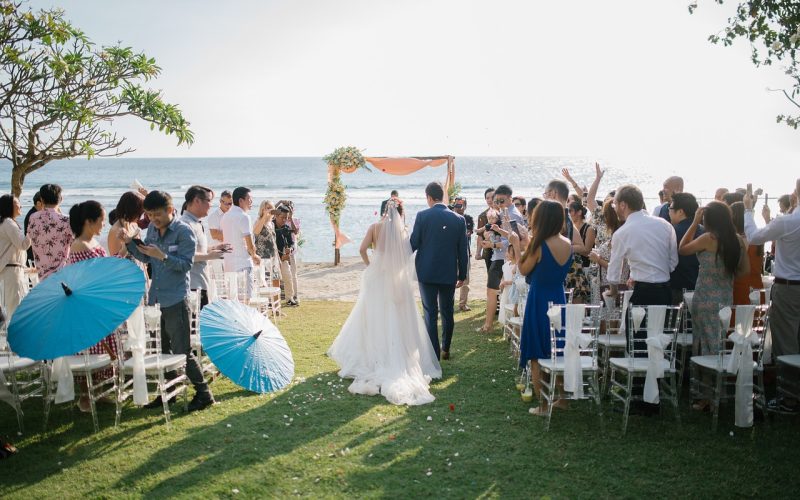Planning a wedding abroad is an exciting opportunity to tie the knot in a picturesque setting. Whether you're dreaming of a beach ceremony in Bali, a historical celebration in Rome, or a mountaintop union in Switzerland, a destination wedding offers a unique and memorable experience for both you and your guests. However, organising such an event requires careful planning and consideration.
Choose your destination wisely
The first step in planning a wedding abroad is selecting the perfect destination. Consider factors such as climate, travel accessibility, and the local legal requirements for marriage. It's important to choose a location that resonates with both of you as a couple and is convenient for your guests. Make sure to visit the location before making a final decision to get a feel for the place and explore potential venues.
Understand the legal requirements
Each country has specific legal requirements for foreign couples wanting to marry. These can range from providing birth certificates and proof of residency to undergoing a medical examination. Research the legalities thoroughly and allow plenty of time to gather the necessary documentation. It might also be beneficial to contact the local embassy or consulate in the chosen destination for guidance.
Set a realistic budget
While a destination wedding can be more affordable than a traditional one, it's essential to factor in additional costs such as travel, accommodation, and potential currency exchange rates. Create a detailed budget covering all aspects of the wedding, including the venue, catering, decorations, and any activities for guests. Remember to include a contingency fund for unexpected expenses, as costs can quickly add up.
Hire a local wedding planner
Having a local wedding planner can be invaluable when organising a wedding abroad. They will have insider knowledge of the area, relationships with local vendors, and experience in handling logistics. A planner can help with everything from securing a venue and negotiating contracts to coordinating day-of details. This can alleviate much of the stress associated with planning a wedding from afar.
Consider your guests
When planning a destination wedding, it's important to consider the experience for your guests. Provide them with as much information as possible, including travel options, accommodation recommendations, and local attractions. Consider hosting events over a few days, such as a welcome dinner or a farewell brunch, to make the trip worthwhile for those who have travelled far. Additionally, arranging group transport can simplify logistics for guests unfamiliar with the area.
Plan ahead and be flexible
Planning a wedding abroad requires a higher degree of flexibility and organisation than a local wedding. Start your planning early to allow ample time for research, and be prepared to adapt if things don't go exactly as planned. This may include adjusting to cultural differences, dealing with language barriers, and accommodating any unforeseen changes to the itinerary.
While planning a wedding abroad comes with its unique challenges, the reward of sharing such a special day in a remarkable setting makes it all worthwhile. By choosing the right destination, understanding the legalities, setting a realistic budget, hiring a local planner, considering your guests, and being open to change, you can ensure a smooth and unforgettable destination wedding experience.




















